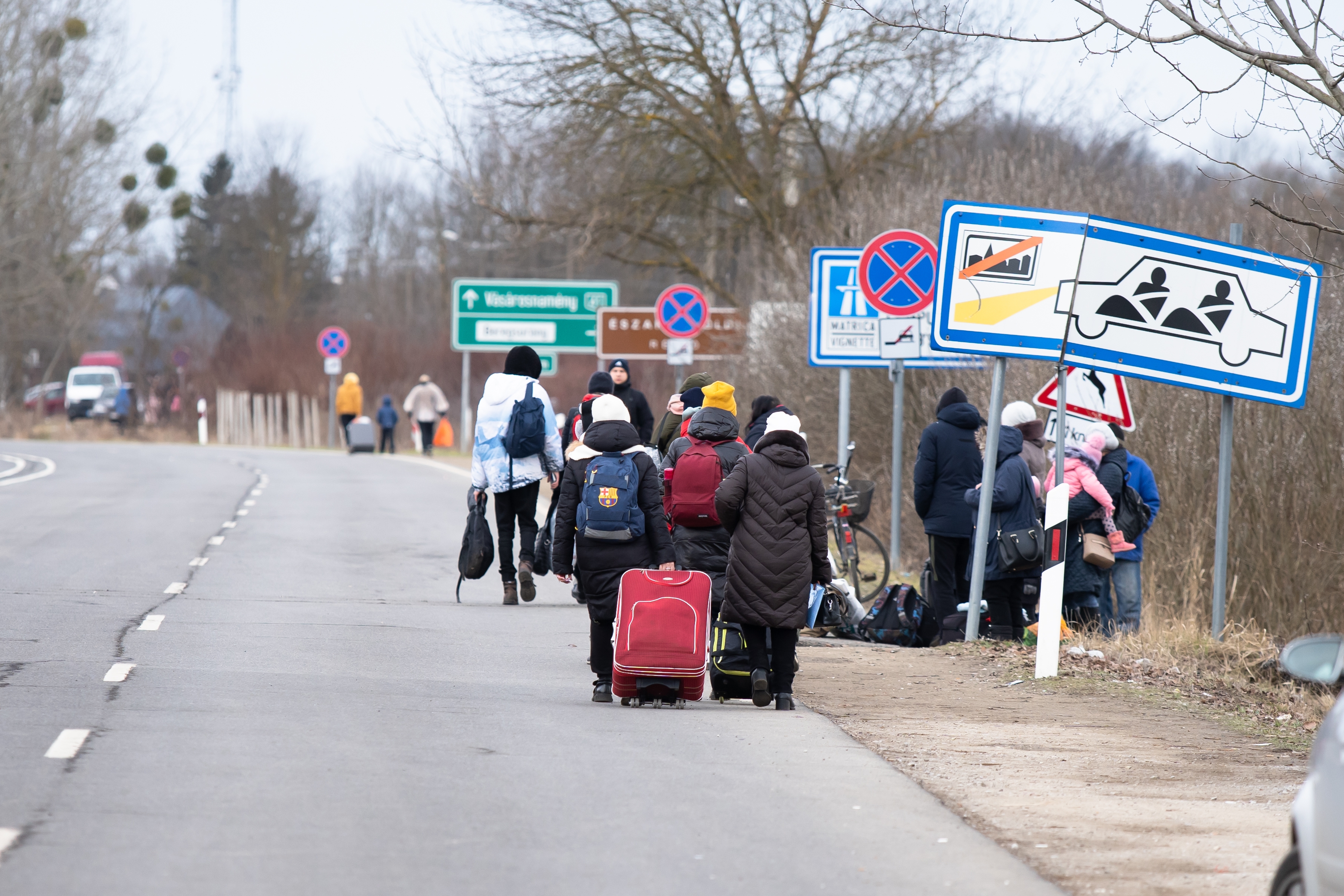Ukraine refused again on Monday to surrender the industrial port city of Mariupol. The Russians have besieged the city and offered safe passage for hundreds of thousands of residents who have been trapped for weeks without food, water or power. Nick Schifrin reports on that siege, now the epicenter of this war’s suffering.
Read the Full Transcript
Judy Woodruff: And the "NewsHour"'s coverage from Ukraine, a reminder, coverage of this war is supported in partnership with the Pulitzer Center.
The European Union's foreign policy chief declared Russia's siege of Mariupol a massive war crime. Ukraine refused again to surrender the industrial port city, as Russia offered safe passage for hundreds of thousands of residents who've been trapped for weeks without food, water, or power.
Nick Schifrin reports on that brutal siege, the epicenter now of this war's suffering.
Nick Schifrin: The war has rendered Mariupol destitute and its residents desperate and deprived. "There is no water," she says, what used to be bedroom walls now windows into lives lost, apartment buildings where hundreds lived now blackened and abandoned.
And from homes that took direct hits, survivors save only what they can carry and themselves, for the dead have lost their dignity. They are now buried by the roadside.
The siege of Mariupol is designed to break this once vital port city's spirit and force families to fleet or hide underground.
Irina Chernenko is the local university's librarian.
Irina Chernenko, Mariupol Resident (through translator): We have been in a basement for 11 days. We hope for the best way, to live as humans.
Nick Schifrin: In Mariupol, that is all they can hope for, to hold onto their humanity. The story of this war is the story of Mariupol, where 80 percent of the structures are destroyed, where Russia warns anyone still in the city will face — quote — "military tribunal," where the theater with 1,000 sheltering in the basement and the word "Children" written on both sides was bombed in a direct hit.
Street-to-street battles prevent authorities from knowing their fate.
Andrei Marusov, Mariupol Evacuee (through translator): Just like barbarian. I mean, it looks so much close to what Nazi Germany did.
Nick Schifrin: Andrei Marusov escaped Mariupol on Friday. He's a historian and compares Mariupol to history's horrors, Stalingrad, Guernica, Aleppo.
Andrei Marusov: Russian aircraft hit by rocket our building and destroyed the eighth and the ninth floors. And we woke up, and they were these cries from those floors that: "Help us. Help us."
We could not immediately get out just because the door was blocked by this hit. But two people — we could not find the bodies of more of two people, more.
Nick Schifrin: Marusov leads a nonprofit that celebrates Mariupol photography and culture. He used to head the board Of Transparency international Ukraine. He hid that work from Russian soldiers who detained him around the corner from his house.
Andrei Marusov: For two or three hours, I was just extending with the hands back. And they were deciding what to do with me. But then military police, Russian military police came and told the soldier which was constantly with me that: OK, let's shoot him. We already shot kind of two civilians just because they were kind of spies or something like that.
And, in the night, I was brought to the hospital, where I actually have been cured as a child. And the gun was just like looking into my chest, you know? And I was standing there and thinking, OK, it would be better if he would shoot just me in the heart, not in the kind of other parts, just not to suffer.
Nick Schifrin: They let him go, and he joined the thousands of Mariupol residents who fled the city. He had no car, so he walked, motivated to live to see his son.
You had to leave your parents behind. Do you know how they are?
Andrei Marusov: My parents, they're 80 years old. The main reason to leave them alone was OK, just because I realized, OK, I will be just shot there, OK? What will be the use of me, you know?
And — no, and again, I was really dreaming about my son.
Nick Schifrin: Some evacuees paraded under Russian state TV before they were forced to give up their Ukrainian passports and they were taken into Russia, reportedly to be held in camps, or they were forced to a school in separatist-held territory, where Putin and separatist leaders have pride of place.
Senior adviser Oleksiy Arestovych admitted on Friday that Kyiv could not recapture Mariupol.
Oleksiy Arestovych, Senior Adviser to Volodymyr Zelenskyy (through translator): There is currently no military solution to Mariupol. You can blame me, the presidential office, the president personally and so on, but there is no solution.
Andrei Marusov: If my Ukraine will be Ukrainian — and I still do believe that it will remain Ukrainian — yes, certainly, I will — I'm ready to get to get back.
But as we see that the situation, it's — is worsening, that they keep blockading the city, and they are trying to kill, I mean, all defendants.
Nick Schifrin: And in this war's epicenter, residents still trapped or being forced to starve or submit.
For the "PBS NewsHour," I'm Nick Schifrin.









